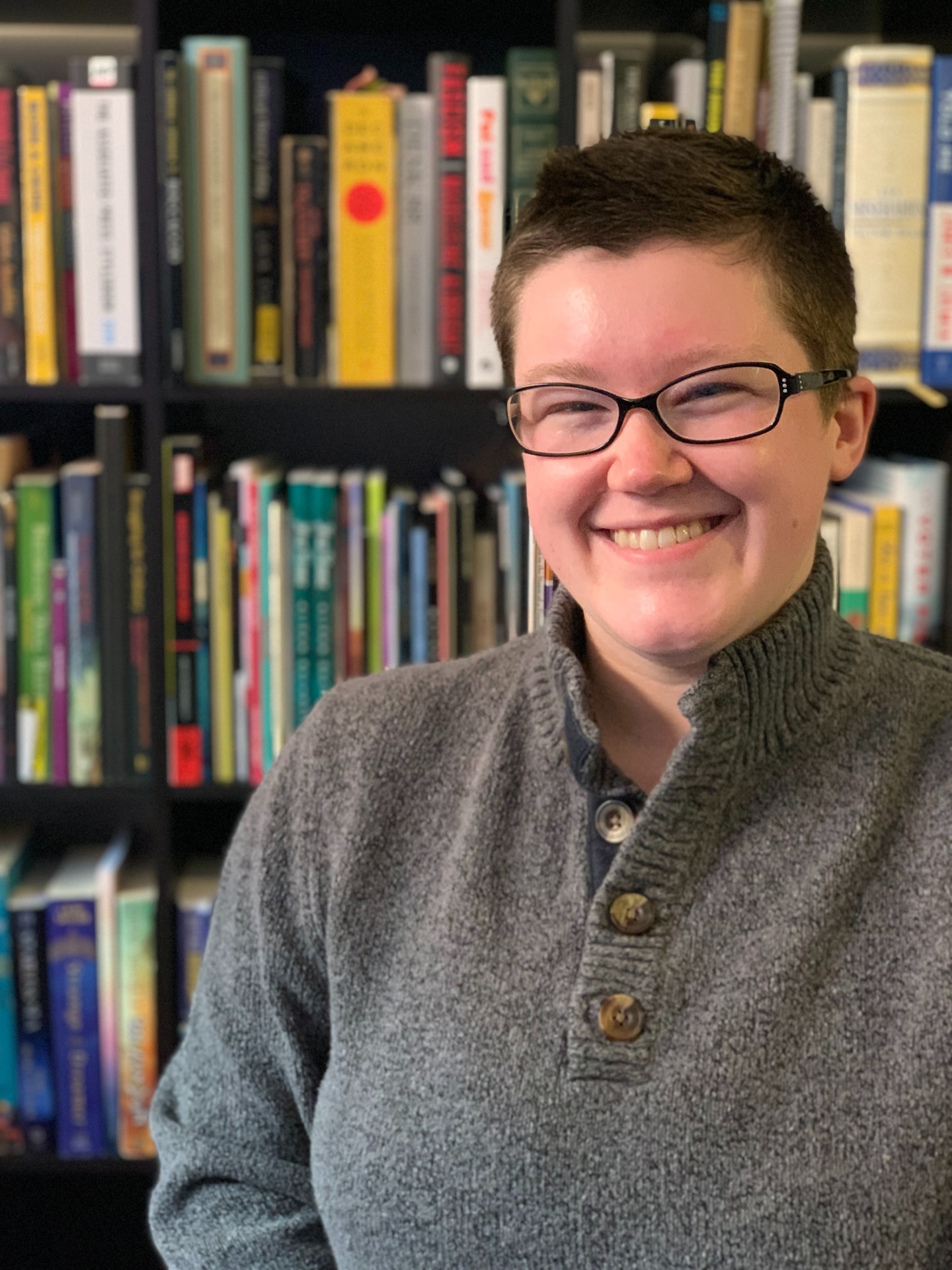Moira Armstrong (they/them), undergraduate in the College of Arts and Sciences and member of the Honors College, is a research assistant on the Queer Pandemic Project. They collaborate with Molly Merryman, Ph.D. (she/they), associate professor in the School of Peace and Conflict Studies, to compile digital, video-based oral interviews for the Queer Pandemic Project in a partnership between Kent State University, Goldsmith’s University of London and Queer Britain. These interviews feature people in queer communities across the United Kingdom, discussing the COVID-19 pandemic and how it has impacted their lives as queer people.

These video-based oral interviews have produced several themes on how current and previous pandemics and health crises, restricted access to healthcare, violence and criminalization have impacted queer communities; as well as shown the connections between the COVID-19 pandemic and the HIV/AIDS epidemic.
“It was interesting to see the language change as I looked at the interviews in chronological order earlier in the pandemic to later in the pandemic,” Armstrong explained, “and how people at the beginning talked about queer community in the present tense, but the later we get into the pandemic, and the more time they spent removed from those communities, they shifted into the past tense.”
These communities have been an integral part of the preservation of queer history. The disintegration of these communities removes the collective voice of the people within those communities. Through history, there has been a lack of and destruction of queer stories, as well as disproportionate impacts on minority groups within queer communities, such as the black queer communities.

“There is a lot of healing potential that the exhibitions and the correlated outreach will have in terms of knowing what is happening to the LGBTQ community,” Merryman said.
The Queer Pandemic Project, a portion of the Virtually Queer Project, will be in the museum collection of Queer Britain, the national museum of LGBTQ history in the United Kingdom. The Queer Pandemic Project will also be a part of the inaugural exhibition of Queer Britain, scheduled for this June 2022. The opening of a brick-and-mortar location this spring of 2022 will allow for more permanent preservation of LGBTQIA+ stories.
“We are hoping that in 50 or 100-years’ time, when historians are looking back [on the COVID-19 pandemic], …this research will elevate the stories of queer people to future historians looking at the COVID-19 pandemic, but also it will be a comprehensive study of COVID-19,” Merryman said, “…the stories of lockdown and the stories of job loss will be helpful to historians regardless of sexual orientation and gender identity.”
Kent State is ranked as an R1 research institution by the Carnegie Classification of Institutions of Higher Education, which is the highest recognition that doctoral universities can receive, affirming Kent State’s place as an elite research institution along with Yale, Harvard and the University of California-Berkeley.
View the full Profile of this Research
